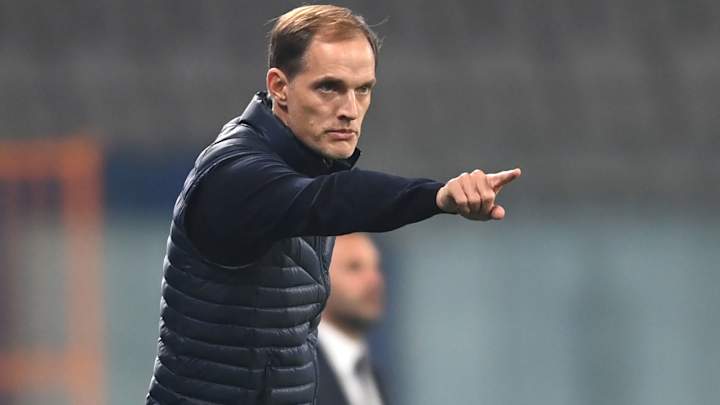What Chelsea Is Getting in Thomas Tuchel

Since Roman Abramovich bought Chelsea in 2003, the club has been engaged in a constant search for an identity. Abramovich invested in football after being thrilled by Manchester United’s 4–3 Champions League victory over Real Madrid and, even in the days of success under José Mourinho, was said to be underwhelmed by the relatively cagey football on offer. Since then there have been flirtations with a range of styles and philosophies. Now that the preeminent way of playing is German pressing, Chelsea has gone for a German.
It seemed briefly as though any German would do. Ralf Rangnick was approached but rejected what would have been an interim deal. Julian Nagelsmann was a target but wouldn’t have been available until at least the end of the season. And so the decision was to appoint Thomas Tuchel, who was dismissed by Paris Saint-Germain in December. He has agreed to an 18-month contract with a possible year extension and was expected to lead training on Tuesday afternoon before Wednesday’s game against Wolverhampton Wanderers.
The search for a German isn’t as preposterous as it may seem. Three of the four coaches in last season’s Champions League semifinals were German, and none of them was Jürgen Klopp, who won the competition the season before. Rangnick’s influence is profound. Add to that the fact that Chelsea’s two most expensive summer signings, Kai Havertz and Timo Werner, are German (as is center back Antonio Rüdiger), and that Christian Pulisic first came to prominence under Tuchel and in the Bundesliga at Borussia Dortmund, and somebody who understands that style of football makes sense.
In that sense, Tuchel is the ideal appointment, but he may not be readily accepted, particularly if he doesn’t get off to a positive start. Lampard’s legacy is a curious one. On the one hand, he leaves an exceptionally gifted squad, a combination of expensive signings and young talent that has been developed from the academy. Whatever the discussions about the rest of his 18 months in charge, what cannot be denied is that Lampard did a fine job of promoting youth. Mason Mount has probably been Chelsea's best player over the past six months, Reece James is an England regular and Tammy Abraham is the club’s top scorer this season.
But his status as a club legend, whose very Chelseasness automatically conveyed identity, makes it difficult for whoever comes next. A new manager's success will always be compared with a mythical future Lampard might have enjoyed. Although there was little sign progress was being made under him, and a number of players had alarmingly lost form, his dismissal came early enough for his defenders to claim that he was sacked prematurely, that he was another victim of Abramovich’s hasty trigger finger.
Maurizio Sarri, despite taking Chelsea to third in the table and winning the Europa League, was never popular with fans who found his football sterile and struggled to warm to his public grumpiness. Tuchel, similarly, is not an ebulliently charismatic figure. He is highly intelligent, but there is a brittleness to him. A thin, balding vegan who favors dark knitwear, he has an acetic air. It shouldn’t matter, but he has no great playing experience—eight games for Stuttgarter Kickers and 69 for SSV Ulm before a knee injury forced his retirement at the age of 25—and that means for many fans (and pundits) he lacks a recognition factor.
His successes are limited—a German Cup with Borussia Dortmund, followed by a handful of obligatory titles in France with PSG, whom he took to last season's final in the temporarily revamped Champions League. He wouldn’t necessarily have been expected to win more, but neither is he arriving with the sort of incontrovertible successes behind him that, say, Klopp had. Perhaps with no fans in the ground for the foreseeable future that is less relevant, but it’s easy to imagine Tuchel's being greeted with suspicion.
Tuchel was nudged into coaching by Rangnick and is clearly of that modern German school. But he is also adaptable and flexible. He believes not in a single tactical approach but in conditioning players to adapt mentally and constantly challenging them. At Dortmund, for instance, he cut the corners off the pitch on the training field to encourage them to attack with greater verticality. He has made defenders practice while holding tennis balls to force them to focus on positioning and clean tackles rather than grappling.
He is intense and brilliant, but also demanding. By the end of his time at Dortmund, players had begun to grow weary of him, and he had banned the chief scout, Sven Mislintat, from the training ground. At PSG, his relationship with the players seemed warmer, but he was undone by the breakdown in his relationship with sporting director Leonardo.
Managing upward seems to be a problem, which must immediately raise concerns at Chelsea, where the relationship between the director, Marina Granovskaia, and the manager is always critical. Petr Čech, Chelsea’s technical and performance director, emerged as a vital figure in Lampard’s final few days at the club.
"It is never easy to change head coach in the middle of the season but we are very happy to secure one of Europe’s best coaches in Thomas Tuchel," Granovskaia said in a statement. "There is still much to play for and much to achieve, this season and beyond. We welcome Thomas to the club."
But then, managing upward has been a consistent problem for all Chelsea managers, and those relationships are always easier if the club's form is good. Results, ultimately, will define Tuchel and his time at Stamford Bridge, but a slow start could undo him almost before his reign has begun.

An accomplished author of multiple books, Jonathan Wilson is one of the world’s preeminent minds on soccer tactics and history.